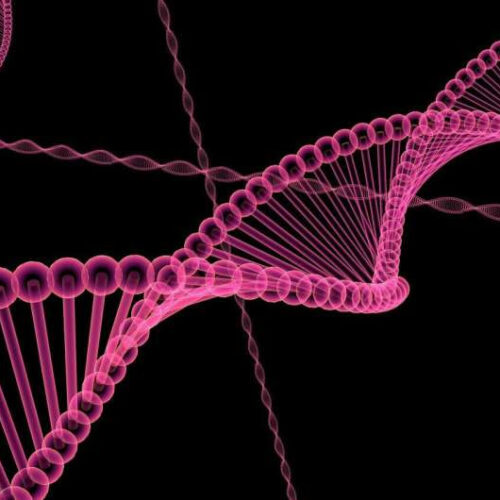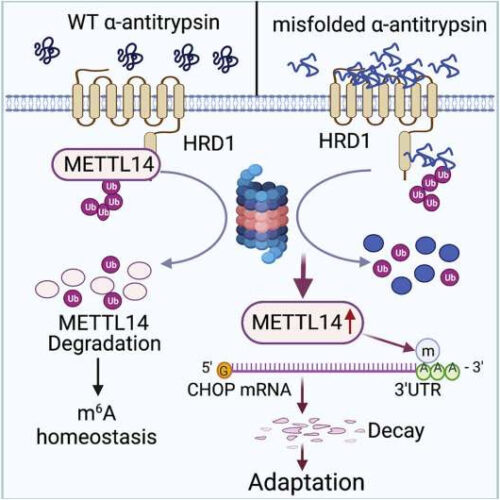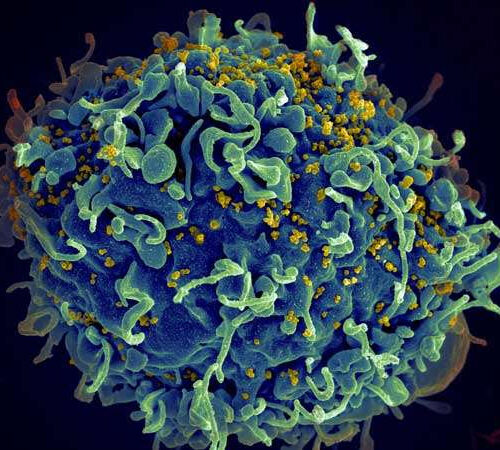by Lila Reynolds, Northwestern University Credit: CC0 Public Domain A new cancer study reports that DNA manifested as knot-like folds and third rungs between DNA’s two strands may drive cancer development, and an important regulatory enzyme could be associated with the formation of these unusual structures. Scientists from Northwestern Medicine and the La Jolla Institute for...
New study could inform treatment and prevent heart attack in diabetic patients
by Baker Heart and Diabetes Institute Myocardial Infarction or Heart Attack. Credit: Blausen Medical Communications/Wikipedia/CC-A 3.0 A new study by researchers at the Baker Heart and Diabetes Institute and Monash University could help inform treatment and prevent serious events like a heart attack or death in diabetic patients at high risk of serious cardiovascular events....
First clinical trial of innovative cancer drug targeting HSF1 pathway begins
by Institute of Cancer Research Credit: Institute of Cancer Research The first cancer patients are to receive doses of an innovative new drug that targets a master regulatory pathway in cells, as part of a new clinical trial. The drug, called NXP800, was discovered at The Institute of Cancer Research, London, and targets the pathway regulated...
COVID transmission influenced by blood transmission rules
by Sam Wood, University of Kent Credit: testalize-me-IfhHgroyKsc-unsplash by https://unsplash.com/@testalizeme } Accumulated evidence worldwide shows that blood type affects the risk of SARS-CoV-2 infection, with blood Type O being less susceptible and non-O blood types more susceptible. The results of a new data model by Dr. Peter Ellis, Senior Lecturer in Molecular Genetics and Reproduction at the...
Study reveals potential therapeutic target for genetic liver disease
by Melissa Rohman, Northwestern University Graphical abstract. Credit: DOI: 10.1016/j.molcel.2021.10.028 Northwestern Medicine investigators have discovered the molecular mechanisms underlying a rare genetic mutation that increases the risk of severe liver disease, according to findings published in Molecular Cell. The study, led by Deyu Fang, Ph.D., the Hosmer Allen Johnson Professor of Pathology, may reveal potential therapeutic...
Researchers discover how the sponginess of stem cell nuclei controls cell differentiation
Reviewed by Emily Henderson, B.Sc. Jan 3 2022 Researchers from Tokyo Metropolitan University have discovered how the sponginess and stickiness of stem cell nuclei controls how they “differentiate” into specialized cells. They found that the nucleus starts solid-like but becomes more fluid-like over time. Less force is transmitted to its inner parts, leaving cells to...
New MXene-based wearable sensor may help athletes with real-time performance measurements
Reviewed by Emily Henderson, B.Sc. Jan 3 2022 Ultrathin nanomaterials, known as MXenes, are poised to make it easier to monitor a person’s well-being by analyzing their perspiration. While they share a similar two-dimensional nature to graphene, MXenes are composed of nontoxic metals, such as titanium, in combination with carbon or nitrogen atoms. With naturally...
HIV patients ‘cured’ by their own unique biology may harbor secrets to end the global scourge
by Delthia Ricks , Medical Xpress HIV (yellow) infecting a human immune cell. Credit: Seth Pincus, Elizabeth Fischer, and Austin Athman, National Institute of Allergy and Infectious Diseases, National Institutes of Health Some people diagnosed with HIV are able to eradicate the virus without antiretroviral medications or even stem cell transplants, possessing the ability to...
UA Professor examines possible link between COVID-19 vaccine and tinnitus
By: Melissa Blasius Posted at 3:29 PM, Sep 22, 2021 and last updated 6:23 PM, Sep 22, 2021 A University of Arizona researcher is looking for commonalities in hundreds of people who have reported sudden or worsening tinnitus after receiving COVID-19 vaccines. “The risk is small, but it seems to me that it is there,”...
Nicotinamide Mononucleotide Supplement Adjusts the Gut Microbiome
In today’s open access paper, the authors report on their investigation of the effects of nicotinamide mononucleotide (NMN) supplementation on the gut microbiome in mice. The gut microbiome changes with age, exhibiting a loss of helpful populations that produce metabolites necessary to health, and the growth in harmful populations that provoke chronic inflammation. Rejuvenating the aged gut microbiome via fecal microbiota transplantation from a...






